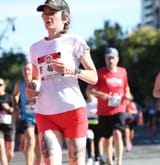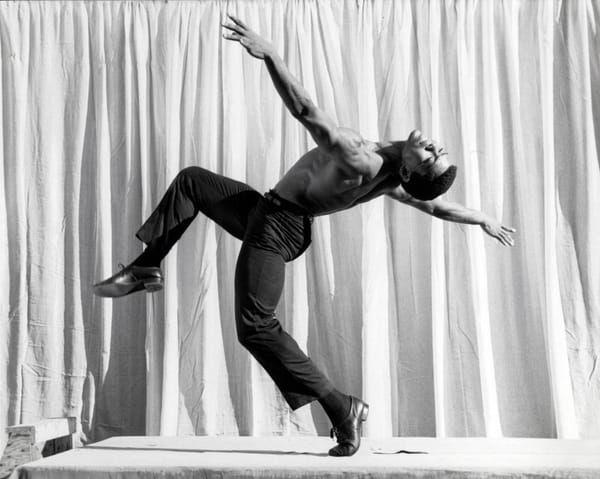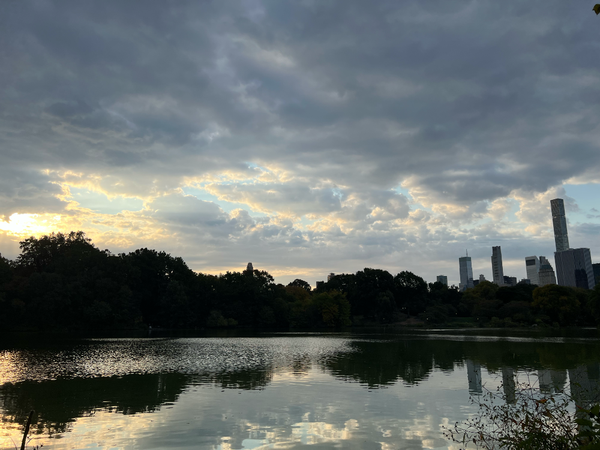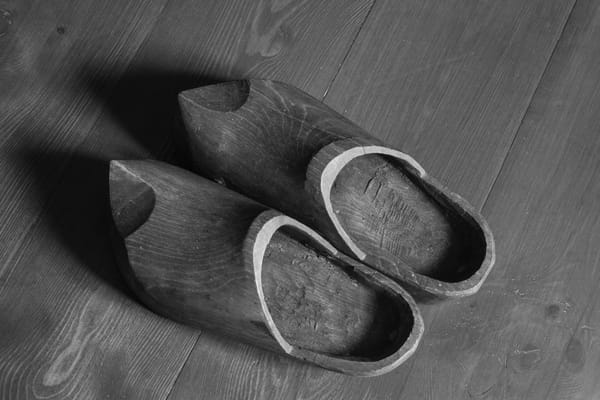What's Good?
Happy Friday? What’s good?
This past week, the Boston Athletic Association began notifying the 33,058 qualifying applicants to the 2024 Boston Marathon of the status of their registration. While the past few years have seen everyone with a qualifying time accepted to run the race, this year, over 10,000 applicants had to be turned away — a reflection, perhaps, of the growing popularity of endurance running since the pandemic. Only the fastest 22,000 applicants were accepted, meaning that one had to run a race 5 minutes and 29 seconds faster than the qualifying standard in order to make the cut for this year’s Boston Marathon. It might not sound like a lot, but the difference between running an 8 minute mile and a 7:48 minute mile feels substantial.
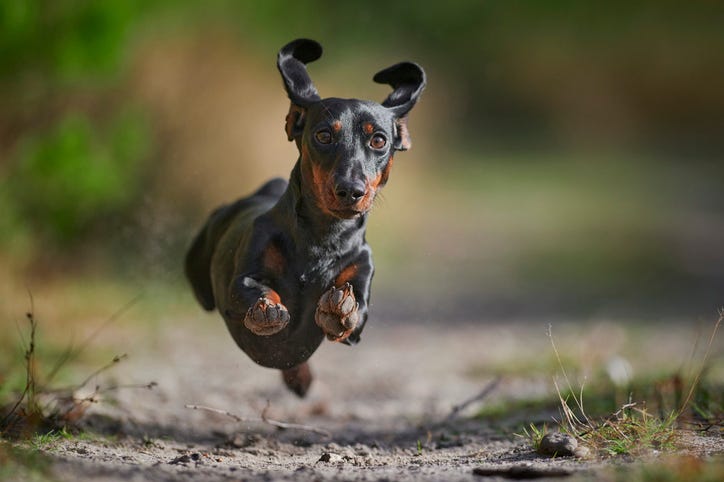
This restricted access to the Boston Marathon runs counter to the story that many runners like to tell — that the sport is open to everyone, that anyone who runs is a runner, that everyone is welcome to run and to race on the very same course that the professionals do. And while some are working hard to make the sport more inclusive, ensuring that clubs and races welcome all bodies running at all paces, this year's acceptances (and rejections) and the response of the running community underscored what Alison Mariela Désir wrote in her book Running While Black: "what Boston showed me was just how deeply invested runners — and people in general — are in the idea of privilege. Exclusivity makes people feel good. It makes them feel special, better than others, when what it really means is that you've bought into an ideology of exclusion and marginalization." The exclusion and marginalization isn't just about speed; it's about race and gender too. And if you know anything at all about Boston and sports, you surely know that, in the words of the late great Bill Russell, the city is a "flea market of racism."
Rubbing salt into the wounds of the 10,000+ runners who thought they’d run a "BQ" but did not make this year's cut — not to mention the hundreds of thousands of runners who will never qualify for the race — was running apparel company Tracksmith, which announced on Monday that it would sell its commemorative singlet only to those accepted into the marathon (not even to those very fast runners who were shut out this year). Their announcement caused an outcry, not only because of the weird exclusionary sales practices, but because of their decision to cite Jock Semple — "this is not a jogging race" — in their PR. Not only did this reinscribe the idea that only certain paces are worthy of even being called “running,” but it used the words of a man whose history is intimately bound up in erecting barriers to diversity in the sport. Semple, a former race official, is perhaps best known for physically assaulting then 20-year-old Kathrine Switzer when she attempted to run the Boston Marathon in 1967. (The rules did not explicitly prohibit women from running, but race organizers had denied women entry nonetheless.)
I don’t have particularly high expectations that brands — particularly brands like Tracksmith whose whole “look” seems invokes a certain New England leisure class whiteness — are ever going to do or say the right thing without a lot of pressure from their customers (and potential customers, of which I can tell you right now, I will never be). I guess the question though is how the running community is going to move forward as the sport becomes more popular, post-pandemic — if the field gets more crowded, who gets pushed out? Or will we find ways to actually expand the field and design spaces and places and races that are truly truly welcome and safe for everyone?
Elsewhere in running news: Hobbs Kessler sets a new world record for the mile: 3:56.13. Via The Wall Street Journal: "How Adidas Outran Nike With Its $500 ‘Super Shoe’." According to MIT, "this robotic exoskeleton can help runners sprint faster." What did Eliud Kipchoge eat before breakfast before running (and winning) the Berlin Marathon?
Other breakfast updates: There are still lots of stories about the doomed cereal industry — Kelloggs, for its part, is looking to "diversify." Meanwhile, "Magic Spoon Just Dropped Protein-Rich Marshmallow Peanut Butter Cereal Bars That Pack a Third of Your Daily Fiber Needs." If there is one cereal that truly deserves to die, it is Korea's green onion Chex. Even NPR, which always tries to see "both sides" of a story, agrees with me that it is very very very bad.
In other food news: "Are You Under-Fueling Your Workouts?" asks Christine Yu. I realize that Ozempic is one of the big wellness trends of the year, but I do not believe for a minute that, as this headline puts it, "Ozempic Is Making People Buy Less Food." (I think there is a real gulf between talk about Ozempic and usage of Ozempic, if nothing else.) "Water Insecurity Is (Also) a First World Problem," writes Anjali Prasertong.
The week's wellness hustles: "Arnold Schwarzenegger Is Here to Pump You Up (Emotionally)." "Raw Meat-Eating Liver King And Other Health Influencers Face Mounting Lawsuits."
On rest and recovery: "Why nonalcoholic beer beats regular beer after exercise." "The Quiet Revolution of the Sabbath." Me, I'm running a half marathon on Sunday. Lots of folks will be running the Chicago Marathon. Good luck to everyone. You’re all goddamn runners, no matter was some clothing company tries to tell you.

